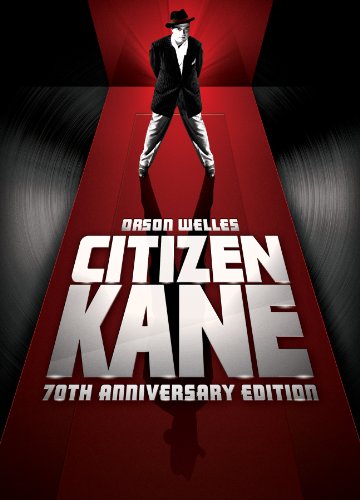All Nonfiction
- Bullying
- Books
- Academic
- Author Interviews
- Celebrity interviews
- College Articles
- College Essays
- Educator of the Year
- Heroes
- Interviews
- Memoir
- Personal Experience
- Sports
- Travel & Culture
All Opinions
- Bullying
- Current Events / Politics
- Discrimination
- Drugs / Alcohol / Smoking
- Entertainment / Celebrities
- Environment
- Love / Relationships
- Movies / Music / TV
- Pop Culture / Trends
- School / College
- Social Issues / Civics
- Spirituality / Religion
- Sports / Hobbies
All Hot Topics
- Bullying
- Community Service
- Environment
- Health
- Letters to the Editor
- Pride & Prejudice
- What Matters
- Back
Summer Guide
- Program Links
- Program Reviews
- Back
College Guide
- College Links
- College Reviews
- College Essays
- College Articles
- Back
Citizen Kane
The irony of a movie like Citizen Kane is based around two statements of truth. The first is that it is hailed as the best American movie ever made—and while the accuracy of such a claim is disputable, the fact that critics hold it up as the finest is not. The second is that, despite all of these declarations, no one outside of the critic circle knows what Citizen Kane is. The sad truth is that, even though it has been around for decades upon decades and has been revived continually, it hasn’t even become a household name. While its scope and scale is enormous—enough to swallow centuries, countries, and possibly all of mankind whole—it hasn’t even achieved the name recognition of Toy Story or Spider-Man.
Perhaps it is because one needs to go into a film like this with the right attitude. It may be an old movie—released in 1941—but the time scale that Citizen Kane operates on jumps to modern-day in a single footstep. At first glance, this film may seem like a biography of the main character—in essence, a single snapshot, the life and times of Charles Foster Kane, who started the fictional New York Daily Inquirer and eventually rose to great heights—fame, fortune, family—before his tumble into loneliness, decay, and death in his self-dedicated shrine of Xanadu. After watching it once, Kane appears to be a tiny window into the details of one man’s life. How can it be seen as more?
It is one man. He isn’t even a part of the movie; he has one faceless, two-second scene, and the rest is told in the recollections and memories of those who once knew him. Why scale? Why scope? The reason that Kane is great is because that is exactly what it is. Charles Foster Kane is a textbook example of synecdoche: he is not all of humanity, but he represents it. Perhaps a person such as him has never existed—once principled, once young and idealistic, soon unable to love but desperate for some love of his own—but it represents something larger than simply one man. Were we not all once full of what we wanted the world to be? Did we not change from wanting to put out mark on the world to wanting to take what we could and run? Kane represents humanity’s brilliance, its selfishness, its desperation, and the futility of it all—the reporters searching for answers of Kane’s last word, Rosebud, believing it to be infused with a life-changing sort of significance, never realizing that it was only the name of a childhood sled—the way that the things we remember, in the end, are not things we might have wanted, or things that we once loved, but things that we never cared about until they were gone?
The movie isn’t just a jumble of ideas. It is a film to define the quality of all others to come. Gothic castles loom in mist, governor-to-be Kane’s face plastered on a big screen before a dark room, an elaborate, gaudy opera of horrific proportions, a single shot of one man systematically and violently destroying a room of perfume and canopies, mirrored hallways reflecting an infinity of Kanes. The lack of color narrows the focus, broadens the scope—different colors are attached to different emotions in different countries, but black and white are universal.
If Citizen Kane is not one of the best movies ever made, then the search for better ones better will be near-impossible. Charles Foster Kane is a shell in which all of us can fit neatly inside. In today’s world of action—gunmen chasing each other over rooftops, drugs, rockets whistling through space—dark rooms and disintegrating relationships conveyed through hazy memories are not exactly ideal. If only everyone could grasp the unparalleled magnificence of Citizen Kane—maybe then the world would be a different place.
Similar Articles
JOIN THE DISCUSSION
This article has 0 comments.

